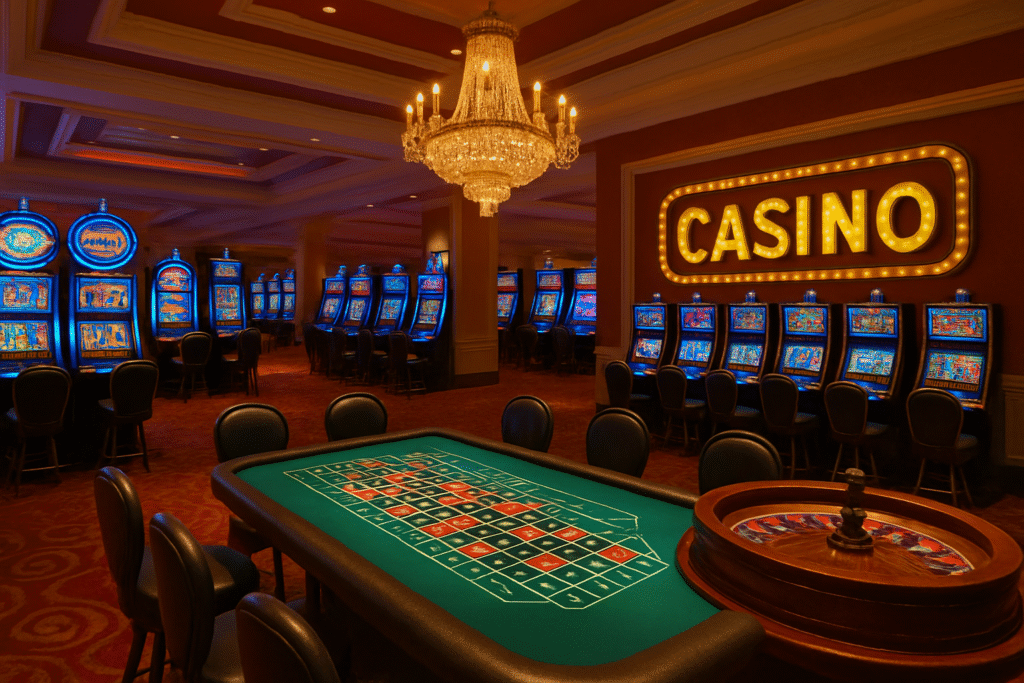
Casino games are not just built for entertainment—they are engineered using deep psychological insights to enhance engagement and prolong player activity. Platforms such as link vào ST666 have mastered the balance between fun and strategy by offering carefully crafted experiences that align with human behavioral patterns and cognitive responses.
Game designers rely heavily on visual and auditory stimuli to capture player attention. Flashing lights colorful animations and celebratory sounds all create a sensory-rich environment that keeps users immersed. These stimuli are not random—they are precisely timed and aligned with player actions to reinforce positive feedback loops and encourage further gameplay.
The concept of near misses is a well-known psychological tactic used in many games particularly slots. A near miss occurs when the outcome is very close to a win but still results in a loss. This creates a sense of almost-success which can be more motivating than an outright win or loss. It gives players the impression that a win is imminent even when outcomes are randomly generated and independent of previous spins.
Variable rewards are another core mechanic in casino game design. Instead of giving consistent predictable outcomes games provide intermittent and unpredictable rewards. This randomness is deeply engaging because it mirrors behavior reinforcement models observed in behavioral psychology. The uncertainty of when the next big win might occur creates excitement and fuels continued play.
Progress bars loyalty points and other forms of achievement tracking also play into our intrinsic desire for progress. Players are more likely to continue playing when they can see advancement even if it’s not directly related to winning money. Unlocking levels receiving badges or climbing a leaderboard taps into the brain’s reward system creating a sense of purpose and accomplishment.
Time distortion is another powerful effect observed in casino environments. Many players report losing track of time while engaged in gaming. This is partly due to the immersive design of the games and partly due to the absence of natural breaks. Online platforms often remove cues such as clocks or exit buttons to promote longer sessions. By structuring the experience as seamless and never-ending they encourage players to stay active without conscious pauses.
Ease of use and minimal friction also contribute to psychological engagement. Fast loading times instant spin options and autoplay features reduce effort on the part of the player. When a task feels effortless it becomes more enjoyable and less taxing on mental energy. This creates an environment where players can stay active longer without fatigue.
Personalization has also become a key feature of modern game design. Casinos track user behavior to recommend games that match past preferences. Personalized bonuses favorite game lists and targeted promotions all serve to make the player feel seen and understood. This strengthens emotional attachment and encourages loyalty to the platform.
Narrative structure in games is another compelling element. Some slot games and virtual experiences include storylines that unfold over time. Players are invited to progress through levels unlock characters or follow a narrative arc that gives their actions a broader meaning. This type of gameplay mimics video game dynamics and appeals to users looking for more than just chance-based outcomes.
Social validation and competition are increasingly common in casino design. Multiplayer games tournaments and live dealer interactions create a sense of community and visibility. Seeing others win joining leaderboards or receiving public recognition all reinforce user behavior by appealing to social status and shared experience.
Understanding these psychological principles does not make casino games manipulative—it makes them effective. Knowing how games are designed can help players engage more mindfully and recognize the triggers that influence behavior. Platforms like link vào ST666 use these techniques responsibly by also incorporating responsible gaming tools that empower players to stay in control.
In conclusion recognizing the psychology behind casino game design provides players with deeper insight into why games feel engaging. From sound effects and visual rewards to achievement systems and personalization these strategies combine to create rich and captivating environments. Playing with awareness enhances both enjoyment and responsibility in the world of online gaming.